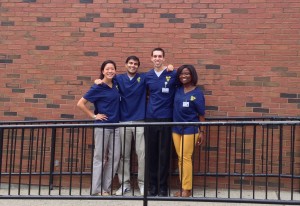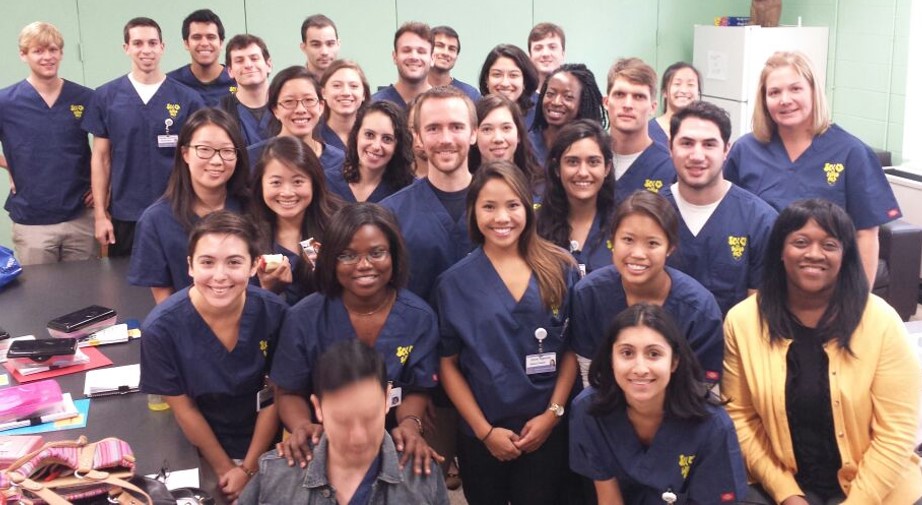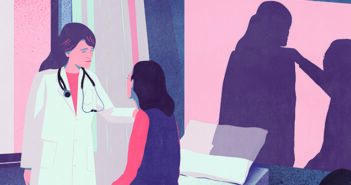Medical students hope to lower teen pregnancy rates in Central Falls
At its best, sex education is a little bit awkward. At its worst, it is ineffective or nonexistent, leading to teen pregnancies, STDs, and misinformation.
Across Rhode Island, approximately one girl in 100 will give birth while she is between the ages of 15 and 19. But in Central Falls, a tiny, densely populated city north of Providence, that rate is quadruple the state average.
Naomi Adjei MD’17 is working with four other Alpert medical students to create a better sex ed program for the city’s middle schoolers. Sex Ed by Brown Med, which debuted in the 2014-2015 school year, is a collaboration between Alpert Medical School, the Rhode Island Department of Education, and the Board of the Central Falls School District. Teams of medical students taught sex ed classes to 168 seventh- and eighth-graders at Calcutt Middle School in Central Falls last fall.

The Sex Ed by Brown Med executive board. From left: Dorothy Liu MD’17, Kunal Sindhu MD’17, Michael Yacovelli MD’17, Naomi Adjei MD’17. (Not pictured: Vinay Rao MD’17).
The idea for Sex Ed by Brown Med was conceived in 2013 after Adjei listened to a speech on teenage pregnancy by Susanna Magee, MD, MPH, the director of the Maternal and Child Health fellowship program at Alpert Medical School.
With Magee, who is the group’s faculty adviser, students designed a comprehensive sexual education curriculum. Topics include reproductive system anatomy, sexually transmitted infection, teenage pregnancy and parenthood, sexual decision making, abstinence, contraception, sexual violence, and gender identity.
Kunal Sindhu MD’17, a founder and member of Sex Ed by Brown Med’s executive board, says medical students are well suited to deliver these lessons because they are younger, and thus more relatable to the middle schoolers than their classroom teachers.
Forty-one medical students taught the classes, and for some the classroom was a familiar place. Dorothy Liu MD’17, one of the program’s founders and executive board members, worked for Teach for America prior to matriculating at Alpert Medical School. “I was surprised by how receptive the kids were—they were really curious and asked a lot of questions,” Liu says.
Liu says they plan to revamp the curriculum for the 2015-2016 school year, so that this year’s seventh-graders won’t just receive the same information two years in a row. Vinay Rao MD’17, another founder and executive board member, says they hope to give students even more exposure to sex ed, perhaps into high school.
Some impacts were immediate: for instance, 97 percent of students correctly answered “what is the best way to avoid becoming pregnant?” after completing the curriculum, while only 76 percent answered correctly before taking the class.
“After our program, students have already become more confident and comfortable discussing topics in sexual education,” says Rao. “We want to achieve a tangible impact in reducing the rates of teen pregnancy.”




